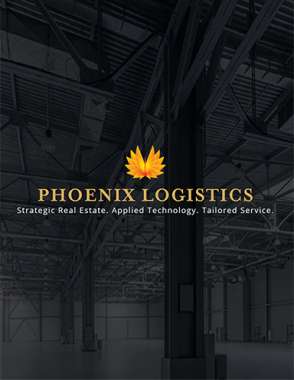Is The U.S. Reshoring Trend A Fact Or A Myth?

Even with 83% of manufacturers indicating a likeliness to reshore due to tariffs, the COVID-19 pandemic, and other reasons, taking those statistics to the heart may prove difficult for industry skeptics.
Taking Reshoring Seriously
Many experienced manufacturing stakeholders might not take rumors about reshoring seriously.
Though business media has touted a growing manufacturing renaissance for many years, the U.S. industrial sector has yet to see much in the way of tangible results from this predicted resurgence before 2021.
Even with 83% of manufacturers indicating a likeliness to reshore due to tariffs, the COVID-19 pandemic, and other reasons, taking those statistics to the heart may prove difficult for industry skeptics. So is reshoring really happening this time, or is it yet another persistent myth?
Finding Signs of Reshoring Activity
Reshoring is an expensive and lengthy process, so companies often hesitate before committing. With that said, the incentives for reshoring have never been so prevalent. A seemingly endless stream of tariffs in 2018-19 under the previous administration destabilized U.S. trading relationships with China and other common outsourcing destinations.
From 2020 on, a global pandemic has continued to disrupt manufacturing within those same countries. Work stoppages, labor shortages, and port shutdowns on both sides of the ocean have further complicated import/export relationships between U.S. businesses and overseas suppliers.
As a result, U.S.-based companies have begun investing resources into reshoring production and logistics activities within or closer to the United States. These investments provide visible and measurable evidence that reshoring as a concept is gaining more traction. For example:
- Walmart committed to spending $350 billion over the next 10 years on supplies sourced from within the United States.
- The Reshoring Initiative reports that reshoring and foreign direct investment job announcements for 2021 are 38% higher than 2020.
- Business leaders have made a marked shift from looking at the per-unit cost to considering the total cost of ownership when evaluating supply chain options.
- Almost 1/3 of manufacturers plan to add capacity within the U.S. instead of another country - up 7% from two years ago.
- More than 161,000 jobs across 1,500 companies have been returned to the U.S. as businesses find ways to establish affordable domestic production.
- The White House has actively promoted reshoring to bolster the domestic supply chain and create American jobs.
These events signal that major companies have turned their attention to reshoring as a viable strategy to address problems stemming from the volatile global business environment. It seems clear by this point that the U.S. business community will reshore manufacturing and supply chain assets to some degree.
When Will Reshoring Happen?
Rather than asking if reshoring will happen, at this point, the more accurate question is: When, and how much? Not all reshoring businesses will move 100% of their assets to the United States. Some will establish redundant manufacturing capabilities between the United States and nearshore or outsource destinations to improve supply chain resiliency through geographic diversity. Others may choose nearshoring over onshoring altogether to avoid heavy automation investments and access more affordable labor. And, of course, some will inevitably choose to maintain their current production model for as long as they can.
For companies seeking to move some or all of their manufacturing back onto United States soil, the process for closing up shop in another country can be complicated. This fact is especially true for China, where ownership of machinery, molds, tooling, and intellectual property may be challenged in Chinese courts when U.S. businesses try to leave. China also has a complex system of taxes, fees, and exit permits that slow down the departure process for foreign businesses.
As a result, near-term reshoring activity will involve U.S. companies shifting toward domestic sourcing strategies rather than moving owned assets. Given the costs and complexities associated with reshoring, it will be several years at a minimum before the United States begins to see significant movement of manufacturing facilities and equipment to the United States, with any reshoring boom probably happening somewhere beyond 2025.
About Phoenix Logistics
Strategic Real Estate. Applied Technology. Tailored Service. Creativity. Flexibility. These fundamentals reflect everything we do at Phoenix Logistics. We provide specialized support in locating and attaining the correct logistics solutions for every client we serve. Most logistic competitors work to win 3PL contracts, and then attempt to secure the real estate to support it. As an affiliate of giant industrial real estate firm Phoenix Investors, founded by Frank P. Crivello, we can quickly secure real estate solutions across its portfolio or leverage its market and financial strength to quickly source and acquire real estate to meet our client’s needs.
Article Topics
Phoenix Logistics News & Resources
4 Best Practices for Online Order Fulfillment In 2023 Is Industrial Real Estate Recession-Proof? 9 Tips for Offsetting Rising Parcel Rates Tips for Retaining Your Peak Season Temp Labor The Great Decoupling and What It Means for Industrial Real Estate How Does the Inflation Reduction Act Impact Industrial Real Estate? Not in My Backyard: Warehouse Edition More Phoenix LogisticsLatest in Business
Trucking Industry Pushes Back on Government’s Electric Mandates Senators Take Aim at Amazon with Warehouse Worker Protection Act Maersk Sees Silver Lining in Red Sea Shipping Challenges Happy Returns Partners With Shein and Forever 21 to Simplify Returns Baltimore Opens 45-Foot Deep Channel Following Bridge Collapse Ranking the World’s 10 Biggest Supply Chains The Top 10 Risks Facing Supply Chain Professionals More Business













